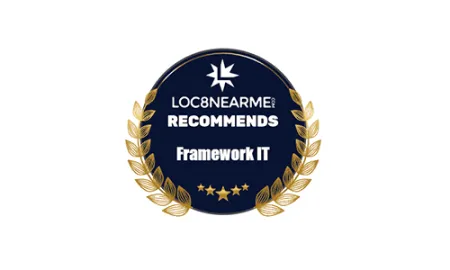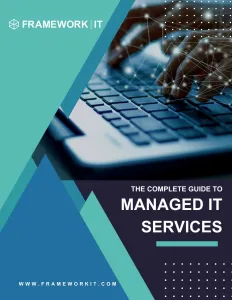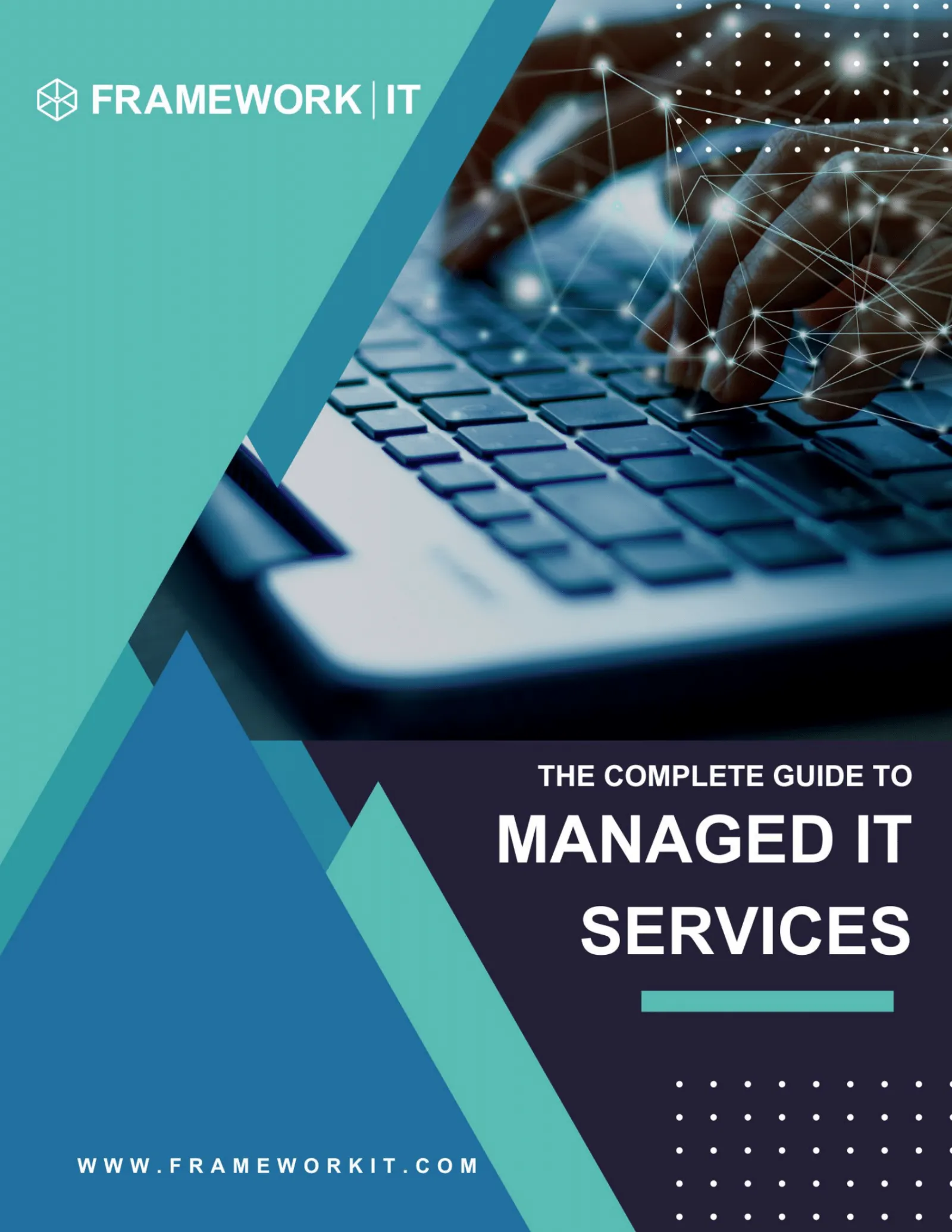Business Leaders In Chicago: Get IT That Powers Your Growth, Not Your Headaches
Framework IT Delivers Trusted, Proactive IT Solutions That Eliminate Problems Before They Start And Protect Your Business From Cyber Threats

Don’t Let Poor IT Support Bring Your Business Down
When IT isn't working, it's not just frustrating—it's a massive business risk. If your IT provider can't keep up, you're facing:
Constant Frustration and Downtime Destroying Your Productivity. Downtime equals lost revenue—every minute offline causes client and staff frustration, which means money, and even your top talent, going out the door.
Cyber Threats Exposing Critical Data. A single breach could damage your reputation and cost you millions—not just in fines but lost trust and future business.
Wasted Time Micromanaging Technology. Your time should go into running your business and leading your team, not babysitting IT, tracking support tickets, and micromanaging IT projects.
Emergency Fixes Blowing Out Your Budget. Dealing with IT problems that should have been avoided drains precious resources, crippling cash flow, and makes budgeting impossible.
Data Breaches Costing You Clients. Any kind of tech failures ruin trust fast. In today's digital world, trust is everything—once it's gone, you'll lose business.
Awards And Recognitions:













Why Business Leaders Trust Framework IT To Protect And Optimize Their IT
Business Optimization Process Our strategy-first approach that rewards you for implementing IT best practices to lower costs, including our managed services pricing, increase productivity, and improve performance. Our process ensures you're not stuck putting out fires—we're building a foundation for long-term success.
Ironclad Cybersecurity Advanced security tools and 24/7 monitoring stop cyber threats before they affect you. Your data is your business—our focus on cybersecurity ensures it stays protected, day and night.
Proactive vCIO Consulting Your Virtual CIO (Chief Information Officer), proactively aligning IT with your business goals and provids expert guidance. You need more than tech support—you need strategic direction to ensure IT drives your growth and matches your budget.
Tailored IT Roadmaps Custom plans that align IT strategy with long-term growth, tailored to your specific business needs. We don't do cookie-cutter solutions; we craft a plan that works for your business and streamlines IT, not just today, but years down the road.
Cloud Solutions Expertise No matter where staff are working, maximize your cloud environment for efficiency, scalability, and security. The cloud isn't just storage—it's the backbone of modern business efficiency, and we ensure it works to your advantage.
30%
15+
100%

Why Choose Framework IT As Your Trusted IT Partner In Chicago And Beyond
At Framework IT, we understand that unreliable IT can hold you back. You need a partner that not only fixes problems but prevents them. Our proven Business Optimization Process is built on IT best practices that close gaps, lower costs, and simplify your life. With comprehensive cybersecurity, 24/7 monitoring, and a strategy-first approach, we make sure your IT is secure and driving your growth—not slowing you down. When your IT just works, you can concentrate on what matters: leading and growing your business.



